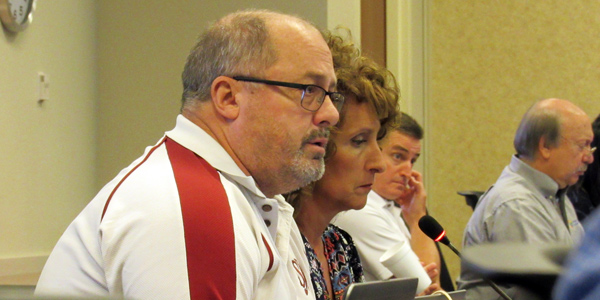By Amanda Durish Cook
After years of inactivity on the topic, MISO’s Steering Committee is directing the Market Subcommittee to re-examine whether the RTO should create a process to compensate resources for energy delivered during a system restoration event where the real-time market has ceased to function.
Steering Committee members made the decision during a July 25 conference call. The Market Subcommittee will host discussion on the topic at future meetings.
Reliability Subcommittee Chair Bill SeDoris brought the issue forward for assignment by the Steering Committee, saying the time is ripe to create a pricing structure for energy used to restore the system from blackout conditions. The RSC pointed to MISO’s declining reserve margin, its tendency to enter more emergency conditions and FERC’s possible future rulemaking to promote resilience.
“This issue is key to compensation for the ultimate act of resilience: the restoration of the bulk electric grid,” the RSC said in its submittal.
SeDoris said the need for a restoration power price was raised in stakeholder meetings as far back as 2012. In 2015, the project was added to the Market Roadmap with low-priority status and has since been in “parking lot” status, the term MISO gives to low-priority market improvements that are on hold. During this year’s June meeting to kick off the Market Roadmap ranking process, SeDoris urged the RTO to resume work on the project. (See MISO Stakeholders to Rank Market Improvement Ideas.)
“It’s always been low priority … but given all the talk around resilience and reliability, the time is right to get this in front of stakeholders again,” SeDoris said, adding that it would be unfortunate if MISO and its members were to face a blackout without a restoration pricing mechanism in place.
Consumers Energy’s Jeff Beattie asked if LMP would provide a pricing framework for restoration energy.
The RSC said day-ahead and real-time markets will not be running during a restoration event because the MISO system will be broken into multiple islands with “widespread blackouts and loss of contiguousness.”
“There are no markets if the system is black, and the markets don’t start back up until the system is stable,” SeDoris explained.
SeDoris also said restoration compensation would differ from MISO’s existing black start services definition because black start resources derive their revenues from the capacity they provide, not MISO’s energy market. Black start generators are those able to restore electricity without using an outside electrical supply.
While SeDoris agreed with other Steering Committee members that utilities will be naturally incentivized to restore service and that the probability of reaching a system restoration event is extremely low, he contended that having no compensation rules could make a bad situation worse. Other Steering Committee members had said MISO could sort through the details of compensation once it recovered from total blackout.
“There’s nothing out there to say, ‘We pay $1,000/MWh or cost of new entry,’” SeDoris said, throwing out examples. “How would we end this? Are we looking at litigation?”





